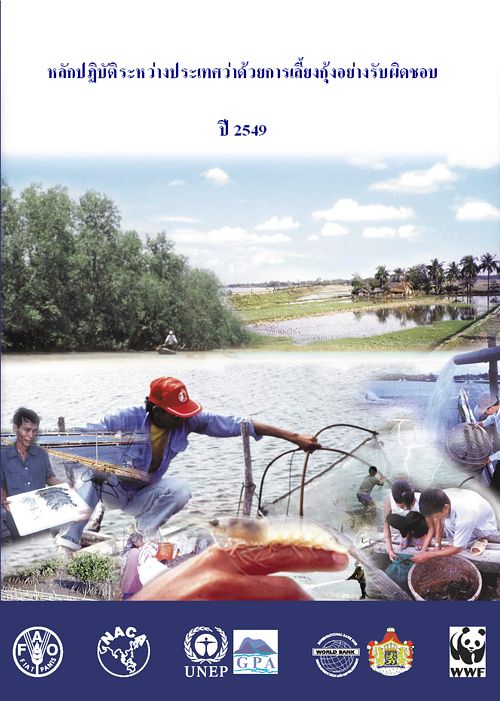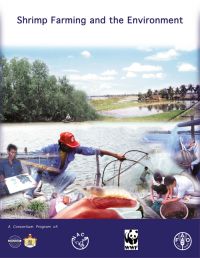หลักปฏิบัติระหว่างประเทศว่าด้วยการเลี้ยงกุ้งอย่างรับผิดชอบ
9 August 2006 | 606 Downloads | .pdf | 821.84 KB | Better management practices, Food Security, Safety and Certification, Genetics and Biodiversity, Hatchery and nursery, Health and Biosecurity, Livelihoods, gender and social issues, Nutrition and feeding, Aquatic plants, Shrimp, Environment and Sustainability, Governance and Policy, Water quality
Shrimp farming is one of the fastest growing aquaculture sectors in many parts of the world and also one of the most controversial. Rapid expansion of this sector generated income fo many countries, but has been accompanied by rising concerns over environmental and social impacts. The International Principles for Responsible Shrimp Farming provide the basis upon which stakeholders can collaborate for a more sustainable development of shrimp farming. The International Principles have been developed by the Consortium on Shrimp Farming and the Environment, which consists of the Food and Agriculture Organization of the United Nations (FAO), the Network of Aquaculture Centres in Asia-Pacific (NACA), the Coordination Office of the Global Programme of Action of the Protection of the Marine Environment from Land-based Activities of the United Nations Environment Programme (UNEP/GPA), the World Bank (WB) and the World Wildlife Fund (WWF).
Copyright, all rights reserved.

